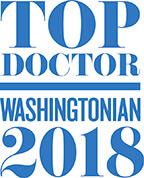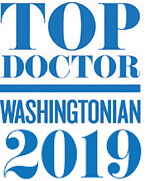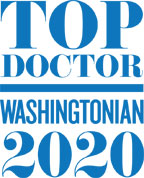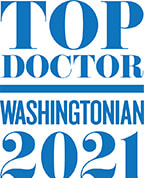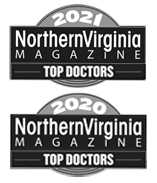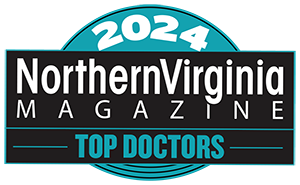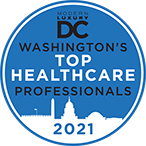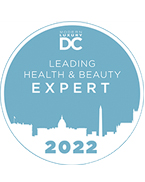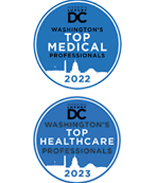Do you think you may have cataracts? It’s more common than you’d think if you’re in your forties or older.
Cataracts are so common, in fact, that half of all adults will develop them by the time they turn 75. Because cataracts are a common and potentially debilitating eye condition, cataract surgery is the most frequently performed medical procedure in the country.
Having your cataracts removed is also the only way to treat your cataracts. If you have cataracts, you may not notice them at first.
Because cataracts develop so slowly, usually over several years, cataract surgeons only recommend having cataract surgery if your cataracts affect your quality of life. While deemed medically necessary to regain your ability to see clearly, cataract surgery is elective surgery, so it’s ultimately up to you to decide when to have it.
Your eye doctor can make recommendations, but only you can determine just how much they affect your life. Keep reading to find out about some of the signs that it may be time for cataract surgery!
Blurry Vision
The main symptom of cataracts is blurry vision. Cataracts form on the natural lens of the eye.

When a cataract forms, it causes the lens to become more opaque, making it more challenging to see through. At first, you may not notice any changes to your vision, but you may find that your eyesight seems blurrier and more distorted over time.
If you don’t have refractive errors like nearsightedness, farsightedness, or astigmatism, you may recognize that your vision is worsening. However, it is more challenging to realize that your blurry vision is due to cataracts if you have a refractive error.
Frequent Prescription Changes
If your prescription keeps changing and gets stronger, cataracts could be why. But needing to use a stronger prescription for your glasses or contact lenses will only help you see better to a certain extent.

The issue is with your lens, not the shape of your cornea. An irregularly shaped cornea is the cause of refractive errors. Getting a stronger prescription for your reading glasses may improve your ability to see to a certain point, especially if you have presbyopia.
Presbyopia is an age-related eye condition that occurs when the lens loses flexibility. It’s possible to have presbyopia and cataracts at the same time. When you have cataracts, even changing your prescription won’t fully correct your vision anymore.
If your glasses and contact lenses are no longer correcting your vision, you’ll see your eye doctor. They will then be able to diagnose if you have cataracts.
But even if you do have cataracts, you may not need to have them removed right away. You may also not know if your worsening vision is due to having cataracts. But if stronger glasses and contact lens prescriptions aren’t helping to correct your vision anymore, it’s a sign it may be time for cataract surgery.
Trouble Seeing in Low Light
Cataracts affect your night vision, making it harder to see when you’re in low light. In the advanced stages of cataracts, you may not be able to see at all without having a source of direct light, especially when doing focused tasks like reading.
It’s common to confuse this symptom for presbyopia, making it more challenging to see things up close. But the issue with cataracts isn’t your ability to focus; it’s your ability to see in low light.
If shining a direct light on what you’re working on helps you see better, it’s probably because of your cataracts.
Finding it Difficult to Drive at Night
Cataracts also make your eyes more sensitive to light and cause increased glare and halos. Combined with the decreased ability to see in low light, driving at night can be particularly difficult due to headlights from other cars.
It can even become more dangerous. If you have cataracts and you’re struggling to drive at night, find a friend or family member that can take you where you need to go until you can have cataract surgery. Choosing to stay off the road is the safest option for yourself and other drivers.

Falls and Injuries from Poor Vision
You’re more likely to trip and fall over things when you have trouble seeing. If you have cataract symptoms and get injured because of your impaired vision, it’s a sure sign that they’re impacting your quality of life.
When cataracts impair your eyesight, you may avoid activities to reduce the chance of other injuries occurring. After experiencing an injury because of your cataracts, you should consider getting cataract surgery as soon as possible.
Missing Out on Your Favorite Activities
Cataracts can affect your vision in several ways. They make it hard to see in low light and cause blurry vision, glare, halos, and light sensitivity.
They also make it harder to see the contrast between colors. Colors may look more muted and have a yellow hue to them, making it harder to know the difference between two similar colors.

The world looks less vibrant when you have cataracts, especially in the more advanced stages. You may find it harder to participate in your favorite activities, from sports to arts and crafts, if you’re suffering from any of the frustrating symptoms that come with having cataracts. If you’re missing out on the things that make you happiest, you should consider having cataract surgery soon.
Cataract surgery removes both your cataracts and the natural lens in your eye. After removing the natural lens, it’s replaced with an artificial lens, called an intraocular lens, or IOL.
Many IOLs provide patients with crisp, clear vision and the ability to see better than you could before developing cataracts. Most IOLs are also designed to correct presbyopia.
If you think it’s time to take your life back from cataracts, schedule a cataract consultation at See Clearly Vision in Tysons Corner and Arlington, VA, today!

